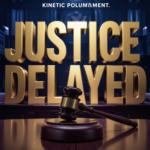Edinburgh – Scotland’s stroke care system is under growing scrutiny after fresh data revealed that only about half of patients last year received the critical package of treatment needed to give them the best chance of survival and recovery.
The findings, published by Public Health Scotland (PHS), show that just 52.9% of the 11,341 Scots diagnosed with a stroke in 2024 were provided with the “stroke care bundle” – a set of rapid, evidence-based interventions designed to reduce disability and save lives. That figure falls far short of the Scottish Government’s own 80% target, which has now been missed for the seventh consecutive year.
What the Stroke Care Bundle Includes
The “stroke care bundle” is considered the gold standard of emergency stroke management in Scotland. It typically involves:
-
Rapid administration of aspirin to prevent further clots.
-
Immediate transfer to specialist stroke units with trained staff and dedicated facilities.
-
Timely brain scans to determine whether the stroke is caused by a clot or a bleed.
-
Specialist assessment of swallowing ability to prevent complications like pneumonia.
Each element is time-sensitive. Delays of even minutes can lead to significantly worse outcomes, with patients often facing long-term disabilities or even death.

Patchy Care Across Scotland
The PHS data also highlights sharp regional disparities in performance. While NHS Fife delivered the stroke care bundle to 66.9% of patients, NHS Borders lagged far behind at 33.3% – barely one in three patients.
| Health Board | Care Bundle Compliance 2024 |
|---|---|
| NHS Fife | 66.9% |
| NHS Lothian | 60.4% |
| NHS Greater Glasgow & Clyde | 55.1% |
| NHS Borders | 33.3% |
Such variations mean a patient’s postcode could be a decisive factor in their recovery prospects.
A System Under Strain
The report points to wider NHS pressures, particularly in accident and emergency departments, as a major reason why patients are not being moved to specialist stroke units quickly enough. However, it also raises a more uncomfortable suggestion – that stroke may not be afforded the same urgency as other high-profile conditions.
“In the current climate of stretched hospital resources, certain specialties are prioritised more than others,” the report notes, warning that this cultural factor may be contributing to the stagnation in performance.
Long-Term Costs of Short-Term Failures
Health economists warn that the cost of underinvestment in stroke services will be felt far beyond the acute care setting. Without timely treatment, stroke survivors often require extensive rehabilitation, home adaptations, and lifelong support – all of which carry significant financial and social costs.
Allan Cowie, Chief Operating Officer at Chest Heart & Stroke Scotland (CHSS), was scathing in his assessment:
“This government has failed stroke survivors and is failing our NHS colleagues who are doing the absolute best they can with the inadequate resources they’re currently being given. While we recognise the financial constraints facing the government, the continued underinvestment in stroke care is resulting in significantly higher long-term costs.”
Cowie argued that each missed opportunity for rapid intervention translates into more people living with severe disability, with knock-on effects for families, carers, and the wider workforce.
Government Response: £52m Pledged
The Scottish Government has acknowledged the shortfall, confirming a £52 million investment programme aimed at boosting stroke care performance. Ministers say they are working with health boards to address bottlenecks, improve staff training, and speed up access to specialist units.
A government spokesperson said:
“We are committed to ensuring that every stroke patient in Scotland has access to the care they need. This funding will be directed towards workforce expansion, improving transfer times, and supporting new diagnostic technologies.”
However, critics point out that similar promises have been made in past years, yet the compliance rate has barely moved – rising from 50.4% in 2023 to 52.9% in 2024.
Stroke Incidence on the Rise
PHS data shows a small but notable rise in stroke diagnoses, from 11,137 in 2023 to 11,341 in 2024. This comes as Scotland faces a growing burden of age-related illnesses, with strokes ranking as one of the country’s leading causes of death and adult disability.
Medical experts warn that lifestyle factors such as obesity, smoking, and high blood pressure remain key risk drivers – but that once a stroke occurs, hospital speed and efficiency are the most decisive factors in patient outcomes.
Calls for a National Stroke Strategy Overhaul
Several health charities and clinical leaders are now calling for a national overhaul of stroke care – including clear performance accountability for health boards and investment in specialist stroke teams across all major hospitals.
They argue that the postcode lottery in care is unacceptable, and that the Scottish Government should treat the stroke care gap with the same urgency as cancer waiting times or heart attack treatment.
The Human Impact
Behind the statistics are thousands of individual stories. For many stroke survivors, the difference between walking out of hospital and spending the rest of their lives in a wheelchair came down to whether they received the right treatment within hours – or not at all.
One Edinburgh patient, who asked not to be named, told CHSS campaigners that delays in being moved to a stroke unit left them unable to return to work:
“By the time I saw the right specialists, it was too late to reverse the damage. I’ve lost my independence, and I feel like I was written off from the start.”


















